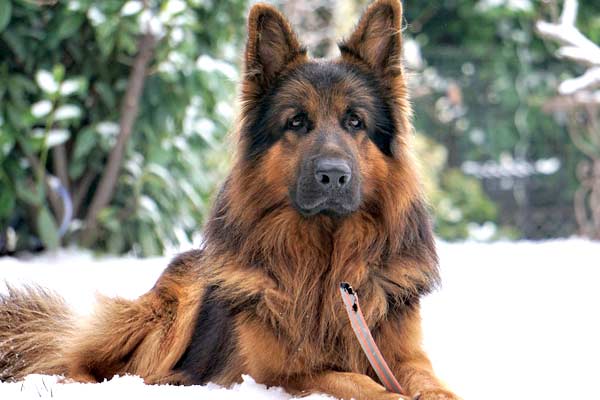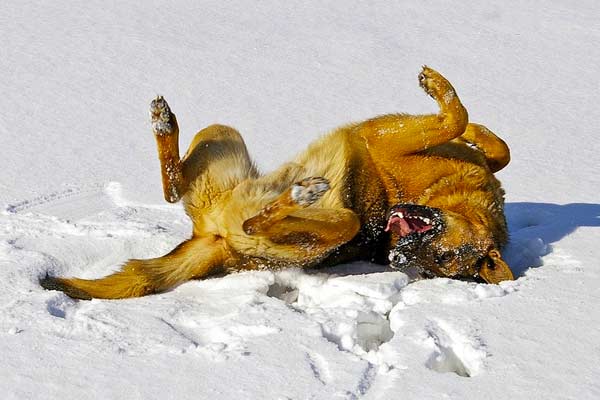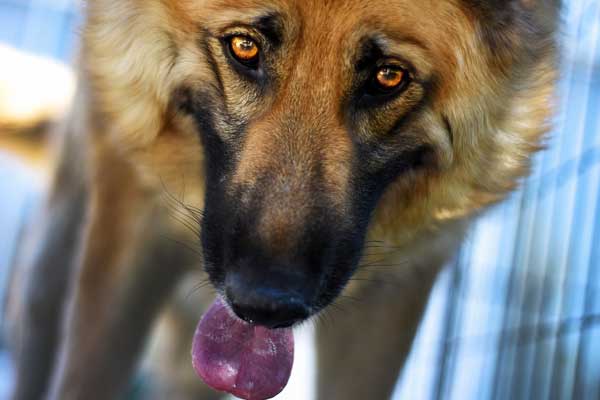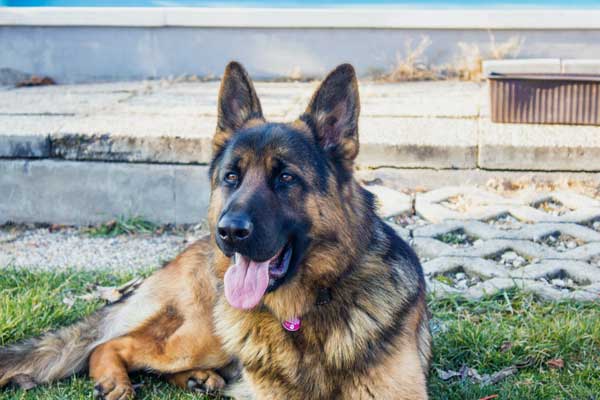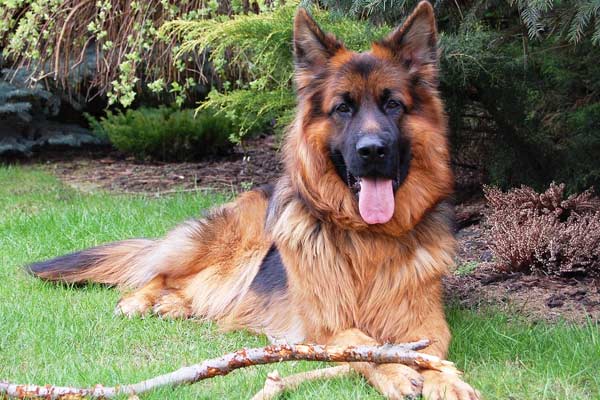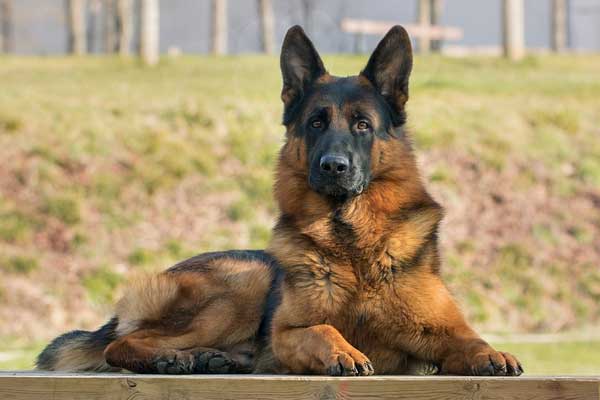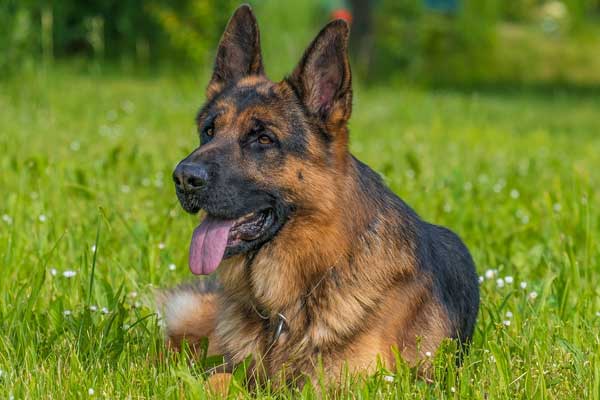How Is Too Cold Weather Affecting German Shepherds? A Comprehensive Guide
German Shepherds are medium to large dogs with a double coat that keeps them warm during cold weather. However, even with their thick fur, they cannot handle temperatures much below freezing.
German Shepherds, like all other dog breeds, are sensitive to cold temperatures and can suffer hypothermia if the temperatures drop too low.
As a rule of thumb, German Shepherds should not be exposed to temperatures below 40°F (4.44°C). Temperatures lower than that are just too cold for them, and they may shiver uncontrollably.
Do German Shepherds Get Cold?
Yes, German Shepherds do get cold. Their double coats provide insulation from the weather and help keep them warm in colder temperatures.
In extreme temperatures or cold for extended periods, they might still experience discomfort. They should have a warm place to stay or an appropriate winter coat.
Also, it is essential to note that while many GSDs love playing in the snow, they should not stay out too long to avoid hypothermia and frostbite.
Therefore, owners must take extra precautions when bringing their GSDs outside during harsh winter.
Factors That Affect a German Shepherd’s Cold Tolerance
Factors That Affect a German Shepherd’s Cold Tolerance include age, health condition, activity level, and weight.
Age – German Shepherds age faster than humans, so they may also be unable to handle the cold when they get older.
Health Condition – A healthy dog is better equipped to withstand cold temperatures than one with a weakened immune system or other medical issues. Therefore, ensuring your German Shepherd’s medical conditions before exposing them to cold temperatures is crucial.
Activity Level – Dogs who lead an active lifestyle will generally be more tolerant of colder weather since their bodies are used to outdoor activities in all seasons and climates.
On the other hand, dogs who live primarily indoors are less likely to tolerate lower temperatures for extended periods due to their lack of exposure and muscle tone from staying inside most days.
Weight – Generally speaking, heavier dogs do better in cold weather than lighter ones because more mass helps retain heat better than less mass. Thus, changing diet and exercise can help prepare lighter dogs for colder months by increasing their overall body weight long-term.
Also, remember that some breeds naturally have thick fur coats, which keep them warm in cold weather.
How Do I Know If My German Shepherd Is Cold?
When it comes to knowing if your German Shepherd is cold, there are a few key signs you should look out for. These include:
1. Shaking or shivering – this is an obvious indication that your dog is trying to keep itself warm and they’re feeling the cold.
2. Hunched posture with a tucked tail – when dogs feel cold, their bodies try to conserve heat by hunching over and tucking their tails between their legs.
3. Whining or barking – dogs may whine or bark to express discomfort, which could indicate that they’re too cold for comfort.
4. behavior change, like seeming anxious or uncomfortable – when dogs don’t feel comfortable due to the temperature, changes in behavior can be observed, such as appearing more nervous than usual.
5. Reluctance to keep walking or try to turn around– if your dog suddenly stops walking and starts turning around, it could mean that they’re no longer enjoying being outdoors because of the chilliness of the environment.
6. Lift paw off the ground – another sign that your German Shepherd might be too chilly is if he lifts his paws off the ground while walking; this could be a sign that he is trying to avoid contact with the cold terrain.
7. Seeks places for shelter – if your dog is seeking out warm spots like under trees or benches, it’s likely that they’re feeling the cold and are looking for somewhere to huddle up and keep warm.
How Do We Keep German Shepherds Warm in Winter?
Keeping your German Shepherd warm in winter is essential to their health and well-being. Cold weather can be particularly harsh on this dog breed, so taking the necessary steps to protect them from the elements is critical.
Owners can take several simple actions to keep their canine companions comfortable all season.
From providing a cozy place for them to sleep at night, investing in a jacket or sweater, protecting and inspecting paws regularly, and offering plenty of blankets for extra warmth – these are just some of the ways you can make sure your German Shepherd stays happy and healthy during cold winter months.
Do German Shepherds Need a Coat in Winter?
No, German Shepherds do not need a coat in winter due to their double coats. Double coats keep the dog warm and insulated in cold weather.
This top coat comprises thicker hairs that protect the animal from heat and rain, while an undercoat of shorter and softer fur provides insulation. As such, they can withstand much lower temperatures than other breeds without additional protection.
Do German Shepherds Need Winter Boots?
Do German Shepherds need winter boots? This is a question that many pet owners ask, especially those who live in areas with cold climates. After all, their paws are exposed to the elements and can be damaged by snow, ice, or sharp objects.
The answer depends on what you expect your dog to do outside in the winter. If you plan to have your German Shepherd running around in the snow and navigating rough terrain, they’ll need boots or paw balm to protect their paws.
However, if your pup is leisurely walking about in a light snowfall, they won’t require any special protective gear!
Can German shepherds get Frostbite?
Though all dogs are susceptible to frostbite, some breeds, like the Alaskan Malamute, German Shepherd, and Siberian Husky, are less likely to be affected.
However, if exposed for too long, any dog can suffer frostbite in freezing temperatures. Seniors are the most vulnerable dogs to frostbite due to their thinner fur coats and weaker immune systems.
So the answer is yes, a German Shepherd can get frostbite depending on their environment and exposure time.
Can German Shepherds get Hypothermia
Can German Shepherds get hypothermia? This is a question that many dog owners have when the temperatures drop.
The answer is yes; they can get hypothermia if exposed to cold temperatures for too long.
As with any dog breed, ensuring your pet has adequate shelter and warmth during cold weather is essential.
Signs of Hypothermia in German Shepherds
Common symptoms of hypothermia in German Shepherds include increased heart rate followed by a slow heart rate, rapid breathing followed by progressively slower and shallower breath, sluggishness and delayed reflexes, depression, paleness, dilated pupils, and loss of consciousness.
Pet owners need to recognize these signs as soon as possible to act quickly if their dog shows any warning signs.

